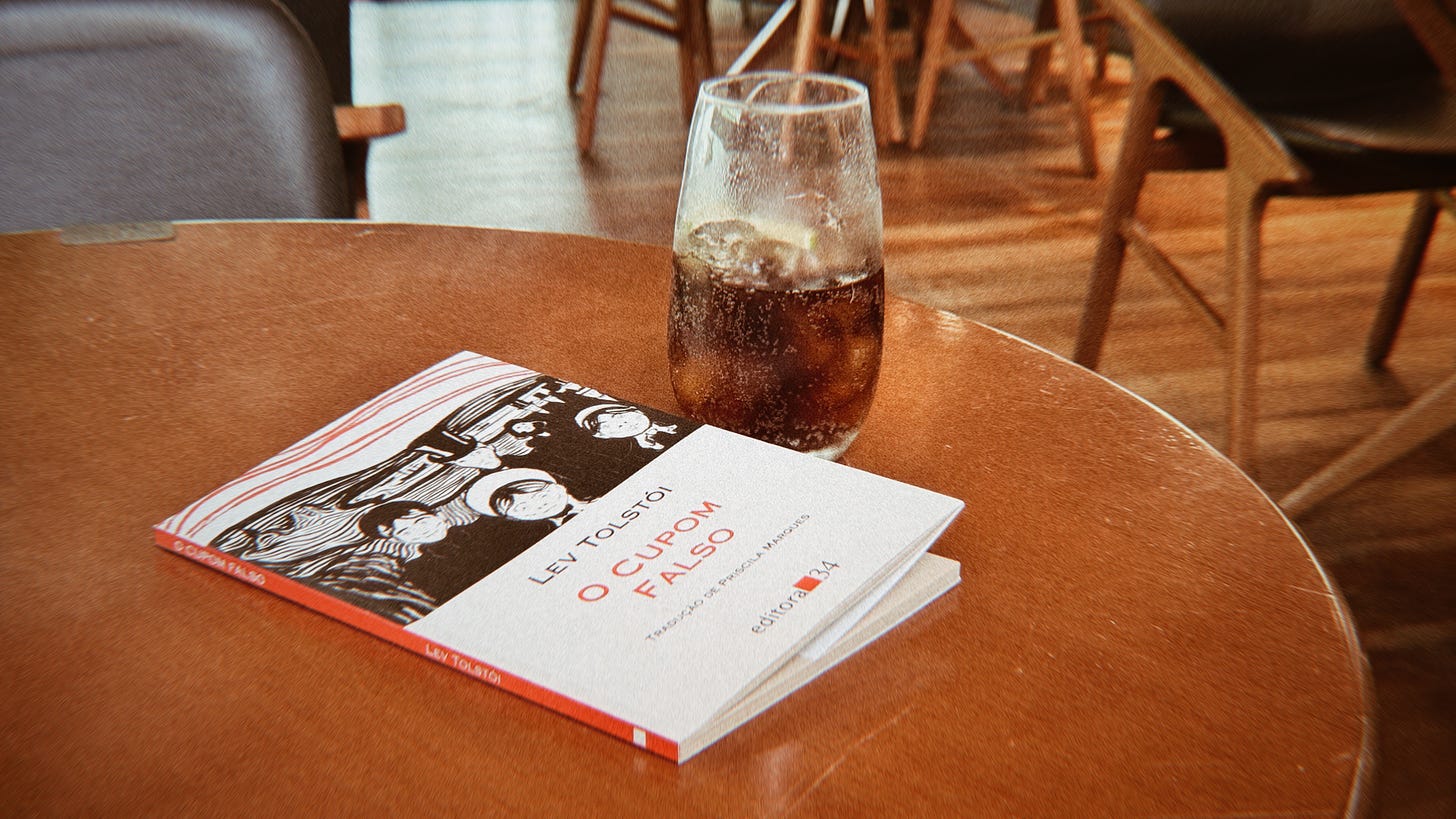what are you reading this week?
I was sitting with The False Coupon in my hands, Tolstoy’s words flowing across the page, when something clicked. It wasn’t earth-shattering—more like a quiet shift in how I saw things. A boy forges a coupon, and suddenly lives spiral in directions they never expected. It made me think: how often do the smallest actions set off ripples in life and in writing?
Tolstoy doesn’t waste words, his storytelling here is straightforward, yet there’s immense power in its simplicity. As I read, I couldn’t help but reflect on my own sense of right and wrong, and how every word that we put down or say every day can cause a bunch of things. Every small choice we make has the potential to ripple outward, affecting others in ways we can’t predict. It’s the weight of these consequences that really sticks with me, both as a reader and a writer.
This book also reminded me of Dostoevsky’s Crime and Punishment, where a single, seemingly justified act sends Raskolnikov spiraling into guilt and self-destruction. Both stories delve deep into the moral fabric of their characters, showing how one decision can alter the course of many lives.
I know that writing is not the same as doing what Raskolnikov did, or it might not have the same consequences of a false coupon–sort of–, but in my own writing, I often start with a single sentence. It’s small at first—just a thought or a fragment—but as I build on it, the story, the post, or the article grows. Before long, it’s not just a sentence anymore; it’s the start of something larger, something that carries weight. Much like that forged coupon–you know?—, a simple beginning can lead to unexpected places.
Reading Tolstoy has made me more mindful of the choices I make as a writer and the consequences that follow. It’s a reminder that in both life and storytelling, no action is insignificant. Every word counts. Every decision matters.
As I closed the book, I felt a newfound appreciation for this interesting interplay between action and consequence. It’s a dance we all participate in, knowingly or not. And perhaps, like Tolstoy, we can strive to be intentional with our choices, both on the page and off.
What do you think?
Also… if a single lie can set off such a chain of events, how many unnoticed choices in your life have shaped the path you’re on now?




